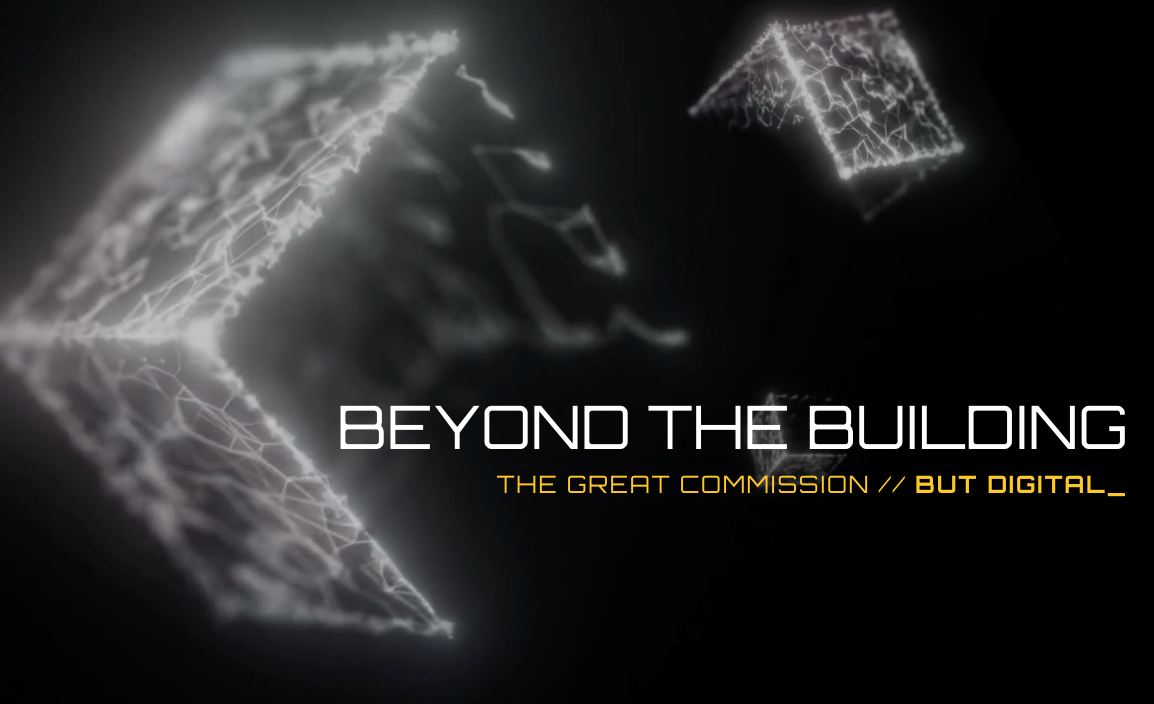EP282: Andy Mage and The Apple Vision Pro
The Future of Tech and Church: Augmented Dreams and Community Realities
The Church Digital Podcast is brought to you by Riverside. Check out how Riverside can help your church's content-creation process - HTTP://THECHURCH.DIGITAL/RIVERSIDE
Understanding Apple's Vision Pro Impact
The recent episode of the Church Digital Podcast (TCD) dove into a technology that could revolutionize not just everyday life but also the workings of the church. Host Jeff Reed and operations director Andy Mage engaged in a lively conversation about the newly released Apple Vision Pro. Priced at $3,500, the device showcases advances in augmented and virtual reality, potentially shaping our workspaces, communities, and how we experience the church digitally.
When Augmented Meets Reality
The episode was both a technophile's delight and a deep dive into the implications of AR in our society. As the discussion unfolded, the two outlined the pros and cons of integrating such advanced technology into our daily routines. The potential distractions and the possible hazard of users becoming too engrossed in their augmented universes were weighed against the seamless and immersive experience the device offers.
A Church Digital in Augmented Reality
The Apple Vision Pro, running on Vision OS, has evidently piqued Jeff's interest, especially considering the long-term impact AR might have over VR. The podcast explored the cultural shift that this technology might beckon, particularly for the church, keeping in mind how such devices might alter attendance and engagement during online services.
A New Stage for Faith and Community Building
Andy emphasized the need for using technological tools judiciously within the church setting, balancing the allure of tech with the focus required to understand God's word. Jeff shared insights into a future where AR might help bridge distances, enabling a level of closeness and shared experience unheard of before.
The Takeaway
Overall, the conversation was an intricate blend of marveling at technological advancements and cautiously assessing their implications for community and spirituality. The episode ended with nods to the importance of adopting new tools for church benefit, signaling a convergence of faith and innovation poised to redefine ecclesiastical spaces in the digital age.
Timecode
-
00:00 Introduction
-
07:56 High-priced new device prompts curiosity and anticipation.
-
09:45 Steve Jobs emphasized beauty inside and out.
-
15:43 Eye scanning for Face ID, hand control.
-
17:05 Immersive productivity experience with powerful virtual screen.
-
19:29 Virtual desktop with MetaQuest 2 experience.
-
24:26 Outside Mac pass through, biggest selling feature.
-
27:52 TV obsolete, at a price
-
32:11 Apple implements new technologies over time.
-
35:25 Apple expanding SDKs, virtual office revolution opportunities.
-
36:45 2022 meta focused on corporate use.
-
40:28 Augmented reality's potential surpasses that of virtual.
-
43:37 Tech limitations, distracted God-like behavior, legal consequences.
-
48:21 Phone sharing trend leads to synchronized movie viewing.
-
52:15 Disney's booming quarter, rumors of buyout.
-
54:38 Tim Schaefer owns Epic with Tencent's involvement.
-
56:32 Epic plans to release its own VR headset.
ON THE SHOW
Host: Jeff Reed
Founder, The Church Digital
Guest: Andy Mage
Operations Director, The Church Digital
QUESTIONS & RESOURCES
-
How do you see augmented reality (AR) shaping the future of church and faith-based communities, particularly in relation to Jeff Reed's belief that it will have a more significant impact than virtual reality (VR)?
-
In what ways could Apple's augmented reality technology potentially enhance or detract from genuine relationship building within the church, considering the pastor's concerns about VR's limitations?
-
What are some ethical considerations and safety concerns that might arise as AR technology becomes more integrated into daily activities and public spaces?
-
Based on Andy Mage's experiences with the Apple Vision Pro, how do you think AR, VR, and mixed reality technologies will transform the workplace and community involvement in the years to come?
-
In what unique ways could churches and other faith-based organizations leverage Apple's AR/VR tech, despite the perceived lack of community-focused features? Are there opportunities for third-party development to fill these gaps?
-
Apple's VR headset integrates with many of their existing communication tools; how might this change the way we interact socially and professionally? Do you agree with the sentiment that the technology lacks certain community-focused features, and how important are these for user adoption?
-
Considering the discussion's focus on technology's impact on church engagement and attendance, what balance should be struck between embracing digital advancements and maintaining traditional elements of worship and community interaction?










